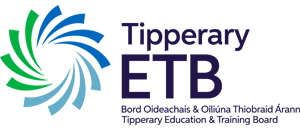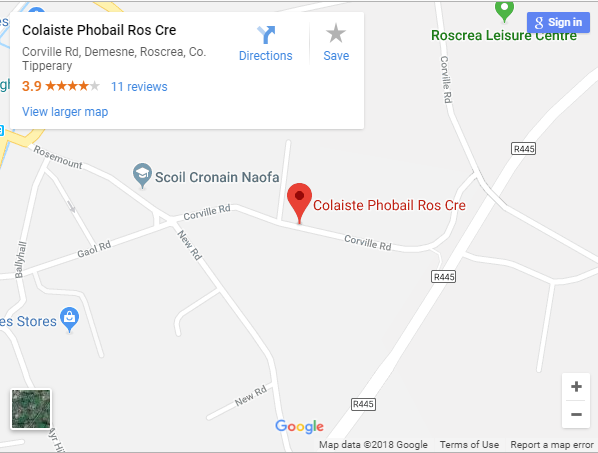Introduction
It’s not possible to hold normal Leaving Certificate examinations in summer 2020,
so students are being offered Calculated Grades instead.
Calculated Grades will allow Leaving Certificate students to go on to further or
higher education or the world of work when they leave school.
It is the fairest way possible to tackle the effects that lack of schooling and other
problems caused by Covid-19 have had on Leaving Certificate students.
Calculated Grades are being offered to students taking the Leaving Certificate,
Leaving Certificate Applied (LCA) and the Leaving Certificate Vocational
Programme (LCVP) in 2020.
What is a Calculated Grade?
A Calculated Grade is a grade that can be provided to students following a
combination of school information about a student’s expected performance in an
examination and national data available in relation to students’ performance in
examinations over a period of time.
A national standardisation process will produce a Calculated Grade for each subject
by combining the school data with historic examination data.
Students in post-primary schools, further education and training centres, private
colleges or any other institution through which students have entered for their 2020
Leaving Certificate examination are included in the Calculated Grades process.
How fair is the system of Calculated Grades?
What will schools do ?
Teachers will provide an estimation of marks and class ranking for each subject that
a child is taking in the examinations. The teachers’ estimates of the percentage
marks are those that the student was most likely to have achieved had they sat a
Leaving Certificate in 2020 as normal.
The subject teachers will work together to align the marks for the subject and the
school principal will provide oversight of the alignment process.
The finalised marks and rankings will be transmitted to the DES for national
standardisation.
Will my child have to do extra assignments or
assessments?
In coming to their judgements, teachers will use for example, records of each
student’s performance over the course of study, previous results in the school in this
subject and the level of performance the teacher has observed in this year’s students
compared to those in previous years.
Teachers have been advised to carefully consider how the results of school-based
examinations, as well as other records are used in this process.
Judgements will be objective and will not take into account perceptions of students’
behaviour.
In the case of substitute teachers, the assistance of the previous teacher can be
included in the process.
What informs the estimated marks and rankings?
No. The principal and teachers are not permitted to discuss the estimated marks the
school is submitting with students or with their parents or guardians either before or
after the estimation process.
Students, parents or guardians must not under any circumstances contact either
formally or informally a teacher or other member of the school staff to discuss the
estimated marks or ranking to be assigned to a student.
They must not attempt to influence, pressurise, coerce or provide an inducement (e.g.
gift) to a teacher in relation to a student’s mark either before or after it is assigned.
Can I discuss my child’s marks with the school?
No. Teachers will not set additional assessments for the purposes of determining an
estimated percentage mark.
Teachers’ judgements will be based on evidence of learning and achievement.
Where additional work was completed after schools closed on 12 March up to the
end of formal tuition on 11 May, teachers have been advised to exercise due caution
where that work suggests a change in performance.
However, teachers are not precluded from taking account of the degree to which
many students under normal circumstances would intensify their levels of
commitment in the run up to examinations.
Yes. As part of the process of Calculated Grades, Leaving Certificate students will
have access to an online portal where they will be required to confirm the subject
level at which they initially entered for the examinations or they can change to a
lower level. They will need to do this on or before 10pm on Thursday 28 May. It is
essential that students confirm their levels at this time so that their schools can
complete their task of providing an estimated percentage mark and rank order for
each student.
Can my child change level?
Where any reasonable accommodation has been approved for any student (such as
a reader, scribe or spelling and grammar waiver), the teacher will base the estimate
of the student’s likely performance on the assumption that this accommodation
would have been available.
What about reasonable accommodations for students
with special educational needs ?
No. The earlier arrangement (communicated in March) that full marks would be
awarded for the orals and music performance tests was based on the written
examinations taking place this summer.
As these examinations will not now take place in the summer, this arrangement will
not apply.
Will my child get 100% for the oral examination(s)?
If your child is taking a subject outside of school the school principal will be asked to
work with whomever is teaching your child to make every effort to provide an
estimated mark. There must be sufficient evidence of the child’s achievement in the
subject for the school to make an objective judgement.
There will be a separate application process for students studying independently and
not attending any school or other centre to apply to receive Calculated Grades. These
applications will be dealt with on a case by case basis.
Every effort will be made to obtain sufficient evidence to provide students with a
Calculated Grade but this may not be possible in all cases. Students will have the
opportunity to sit the 2020 Leaving Certificate examination at a later date when it is
safe and practicable to do so.
Will my child get a Calculated Grade for a subject studied
outside of school?
Yes. Calculated Grades will have the same status as Leaving Certificates awarded
to students in previous years.
As usually happens, students will receive a provisional statement of results. At a
later time, a formal final certificate will issue from the Department of Education
and Skills confirming the grades.
Students’ Calculated Grades will be transferred directly to the Central Applications
Office (CAO).
The CAO timelines will run as close as possible to normal to allow for students to
take up offers and to transition to third level, further education or work.
Will the calculated grades be recognised for
employment and further study?
At this point in time all students are being offered Calculated Grades which means
that they can progress on to the next stages of study or employment. Your child can
sit a Leaving Certificate later but at this point it is not possible to confirm the date.
These examinations will be provided as soon as it is safe and practicable to do so.
Can my child also sit a Leaving Certificate examination
later?
It is intended that the Calculated Grades will be provided to candidates as close as
possible to the normal results day.
When will the Calculated Grades be issued to students?
Yes. After the results are issued by the Department of Education and Skills, students
will be able to see a record of their individual percentage mark and ranking that the
school has given to them.
Can a student see the estimated result that the school
submitted for them?
You can appeal to the Department of Education and Skills and the appeals process has
three stages involving:
• Stage 1 & 2: Checks will be undertaken to ensure that the data processing was
completed correctly by the school and the Department of Education and Skills.
• Stage 3: If a student is still unhappy after stages 1 & 2 they can then seek a review by
Appeal Scrutineers, who are independent of the Department of Education and Skills.
Finally, if the student remains unhappy there will be an opportunity to sit an
examination later when it is safe and practicable to do so. Additional information in
relation to Appeals is available in the Guide to Calculated Grades for Leaving Certificate
Students 2020
Due to the nature of the model, the professional judgment of the school will not form
part of the appeals process.
What if my child is unhappy with their Calculated
Grade?
Further Information:
For further information and resources including frequently asked questions and wellbeing resources see
www.gov.ie/leavingcertificate
Calculated Grades – A Guide
for Parents and Guardians of
Leaving Certificate Students
2020
What will the student do next?
To support the Calculated Grades model, the Department of Education and Skills
has developed a Calculated Grades Student Portal for Leaving Certificate students.
This is available at gov.ie/leavingcertificate
Each student will need to register on the student portal on or before the 28 May.
To register the student will need their examination number and to know their PPS
number. They will also need to provide an email address and phone number which
will be used to communicate with them about later stages of the Calculated Grades
process.
They will be asked to confirm the levels (Higher or Ordinary or Foundation) at
which they are taking each subject or they can change to a lower level.
Leaving Certificate Applied students need to complete the registration process
only.
At a later date the student will be asked to confirm that they are opting to receive
Calculated Grades.
Students will also have access to their provisional Calculated Grades and to later
stages of the process, such as appeal application process, through the portal.
The Calculated Grades model uses the best information available about students’
achievements by asking teachers to apply their professional judgement and review
several pieces of information about their work over the last two years.
The national standardisation process does not favour any type of student or school.
The process will ensure that the Calculated Grade will be as close as possible to
what the student would have achieved in the examinations.




